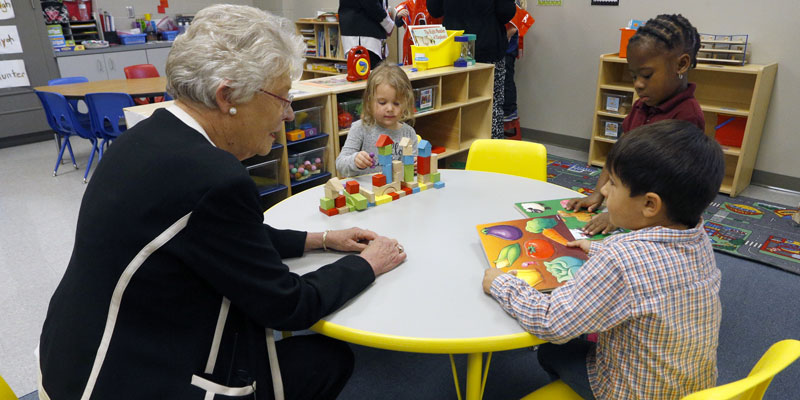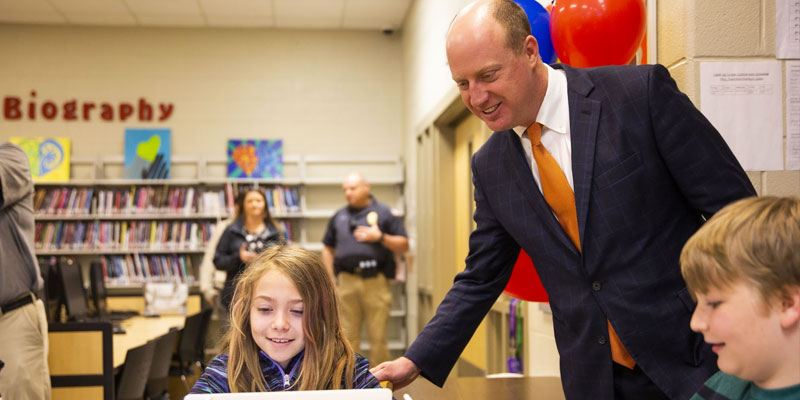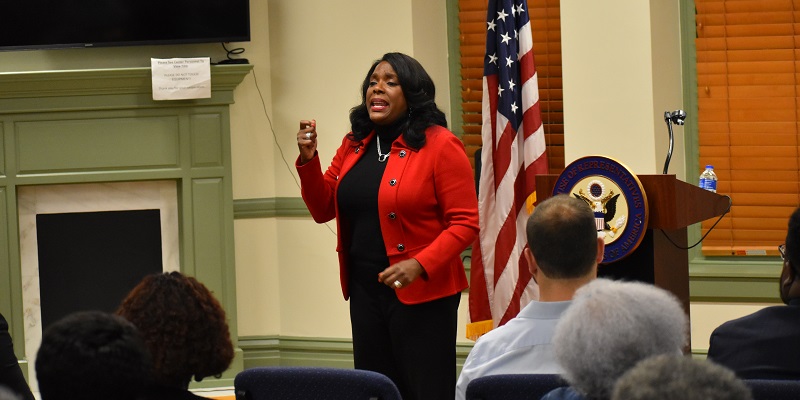Alabama is ranked number one in the nation in something besides football, and under Governor Kay Ivey’s leadership, this type of success appears to be becoming a strong trend.
A recently released report named Alabama’s First Class Pre-K program as America’s best once again, lauding the state-funded program as the “only pre-kindergarten program in the country that comes close to having all the elements of a strong pre-k program.”
In its “Implementing 15 Essential Elements for High-Quality Pre-K: An Updated Scan of State Polices” report, the National Institute for Early Education Research (NIEER) found that Alabama’s First Class Pre-K program fully met 14 of the report’s 15 “essential elements” characterizing high-quality programs, and it partially met the 15th element, too.
Included among these benchmarks were measurements assessing a program’s leadership, early learning policies and program practices. Alabama’s performance in meeting the essential elements exceeded the national average by more than 233 percent.
Advocates from the Alabama School Readiness Alliance (ASRA) lauded NIEER’s latest study, pointing out that the Yellowhammer State’s adherence to high quality is one reason why ongoing research by the University of Alabama at Birmingham (UAB) and the Public Affairs Research Council of Alabama (PARCA) shows that students who attend First Class Pre-K perform better than their peers on state reading and math assessments.
“The National Institute for Early Education Research is the foremost leader on pre-kindergarten quality and for this organization to continually find Alabama’s program among the nation’s best is a testament to state leaders,” Allison Muhlendorf, ASRA executive director, said in a press release.
She continued, “The Essential Elements report confirms that the long-term effectiveness of a pre-k program is dependent on its commitment to quality, and we are proud that Alabama continues to differentiate itself as the nation’s standard-bearer in this effort.”
Alabama also received strong marks from NIEER in May when the organization released its annual State of Preschool Yearbook. That report ranked Alabama’s First Class Pre-K program as the nation’s highest quality program for the 12th consecutive year.
The Office of School Readiness, housed within the Alabama Department of Early Childhood Education, administers First Class Pre-K.
“First Class Pre-K is a nationally-recognized program of excellence,” Jeana Ross, Secretary of Early Childhood Education, said in a statement after the release of the NIEER Yearbook earlier this year. “The program framework encompasses all aspects of the highest quality early learning experiences that ensure school readiness for children, and this emphasis on quality impacts student outcomes far beyond kindergarten.”
While the NIEER Yearbook examines state policies that support state-funded pre-k, the Essential Elements report reviews the environment needed for states to execute a high-quality pre-kindergarten program, as well as the degree to which states implement their policies.
There are currently 1,045 Alabama First Class Pre-K classrooms located in various public and private schools, child care centers, faith-based centers, Head Start programs and other community-based preschool settings. However, that is only enough classrooms to enroll 32 percent of four-year-olds across the state, and ASRA and state leaders want to continue increasing access to the tremendously successful program.
This spring, the Alabama Legislature approved Ivey’s request for the program’s largest-ever single-year budget increase – an extra $18.5 million for First Class Pre-K in the 2019 program budget, bringing its annual total to $96 million.
“Having a strong start to one’s educational journey is critical to having a strong finish when it comes time to enter the workforce,” Ivey said in a release at the time. “Alabama’s voluntary First Class Pre-K program is, without question, the best in the nation. I am proud that we can increase the reach of this important educational opportunity, and I look forward to continuing to work with the Legislature to further expand the availability of voluntary Pre-K.”
In 2012, ASRA’s business-led Pre-K Task Force launched a ten-year campaign to advocate for full funding for the First Class Pre-K program through incremental state funding increases. ASRA has estimated that the state would need to appropriate a total level of funding of $144 million to give every Alabama family the opportunity to enroll their four-year-old in a First Class Pre-K program voluntarily.
Ivey hosted a packed Early Childhood Education Leadership Forum last week, where the governor stressed that she wanted to see continued progress moving forward in the early stage of education, including Pre-K.
The Ivey administration has also overseen Alabama being ranked as the nation’s best for its engaged workforce, business climate and manufacturing, along with other top economic development rankings.
Sean Ross is a staff writer for Yellowhammer News. You can follow him on Twitter @sean_yhn












